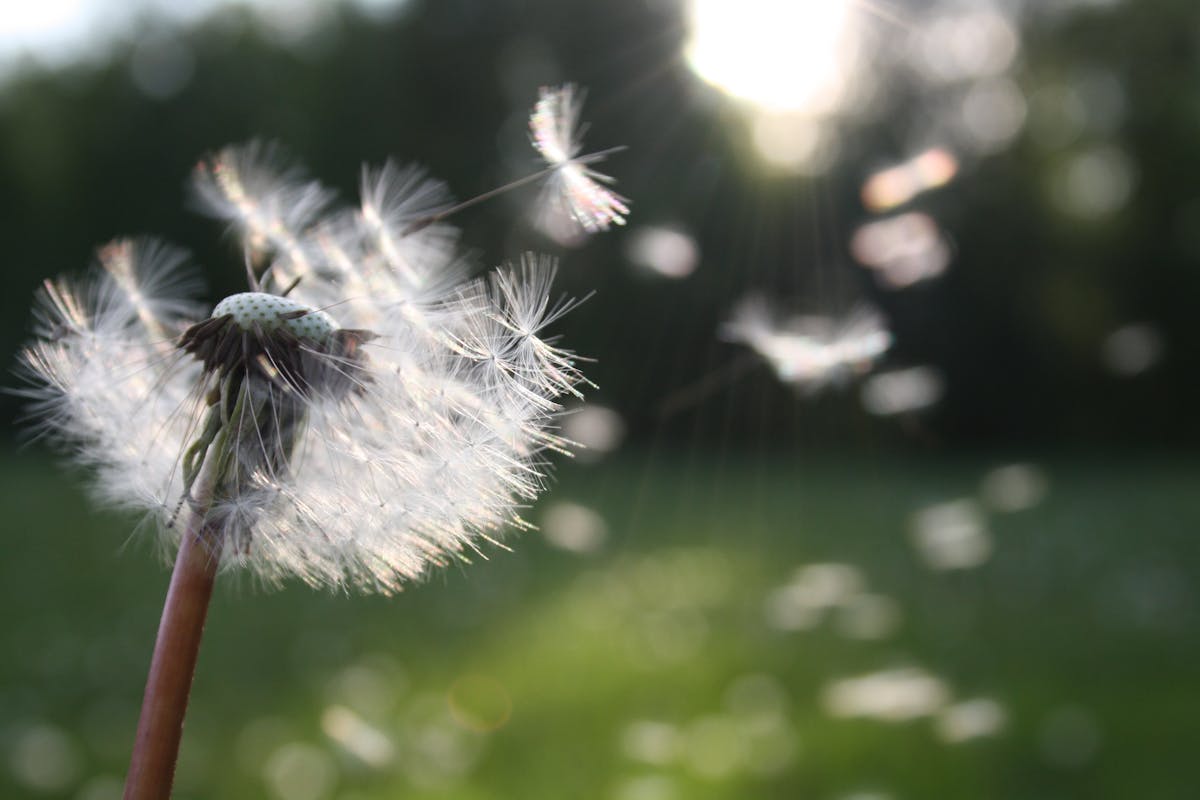Summer Allergies: Understanding Causes and Effective Treatments
 by Chris Yun, MD
by Chris Yun, MD
Summer Allergies: Causes and How to Treat Them
After the flowering season ends in spring, allergy sufferers might think they are home free for the rest of the year. Unfortunately, this isn't always the case. There are many new triggers that appear right when we start going on summer vacations. Here's a rundown of what to know about summer allergies.
What Causes Summer Allergies?
Pollen
While most trees stop flowering by the end of spring, grasses begin to pollinate in late spring all the way through the end of summer. In warmer climates, pollination season may begin earlier and last later.
Specifically, ragweed blooms in late summer, primarily on the East Coast and Midwest.
Mold
Mold flourishes in warm and humid conditions, making it a common allergen during the summer months. Mold spores can be found both outdoors and indoors, particularly in damp areas like basements, bathrooms, and gardens.
Smog
Air pollution can exacerbate allergy symptoms and respiratory issues. This includes the recent wildfire smoke which has been affecting wide swaths of the country.
Stinging Insects
Wasps, bees, and other stinging insects are more active during the summer. For individuals allergic to their venom, a sting can lead to intense allergic reactions that require immediate medical attention.
Weather Changes
Weather changes can trigger allergies. Rain, for instance, can temporarily clear the air of pollen, giving some relief to pollen allergy sufferers. However, after the rain, pollen counts may surge, leading to more severe symptoms. In addition, windy days will stir up more airborne pollen.
The Connection Between Pollen and Food Allergies
It's important to note that some people with pollen allergies may experience oral allergy syndrome (OAS) when eating certain raw fruits and vegetables. OAS occurs because the proteins in these foods are similar to those found in specific pollens, leading to cross-reactivity and symptoms like itching or swelling of the lips, mouth, and throat.
Allergy Symptoms and Diagnosis
Allergy Symptoms
Summer allergies can manifest in various ways. The most common symptoms are:
Sneezing
Runny or stuffy nose
Itchy or watery eyes
Coughing and wheezing
Skin rashes or hives
Fatigue
How Your Doctor Can Diagnose Allergies
Consulting a healthcare professional is essential if you suspect you have summer allergies. Your doctor may perform a skin test for allergens or they may perform a RAST blood test to determine which allergies you have. These examinations will help determine the most appropriate treatment plan.
Allergy Treatments
Fortunately, various allergy treatment options are available to treat allergies.
Over-the-counter Treatments: For mild summer allergy symptoms, over-the-counter antihistamines, decongestants, and nasal corticosteroids can provide relief. These medications can help reduce sneezing, itching, and congestion.
Prescription Allergy Medications: For more severe or persistent symptoms, your doctor may prescribe stronger medicines. Immunotherapy (allergy shots) are a good idea for long-term relief.
Prevention
The best way to treat allergy symptoms is to avoid them altogether. These are several ways in which to do so:
Wear a Mask Outside: Especially when performing outdoor chores like mowing the lawn, wear an N95 mask to prevent the inhalation of pollen.
Keep Windows Closed: Pollen typically releases in the early mornings, so keep your bedroom windows shut overnight.
Pollen Removal: When you return home after spending time outdoors, take a shower or wash your face to rinse off any residual pollen clinging to your skin and hair. Changing your clothes will also help prevent allergens from spreading indoors.
Keep Your Living Space Clean: Regularly clean and dust your living areas to reduce indoor allergens. Vacuum carpets, wipe surfaces, and wash bedding frequently to minimize the presence of allergens that can trigger your symptoms. Use a high grade air purifier to remove pollen and pollutant particles.
Check Pollen Counts for the Day: Weather websites and apps usually list both air quality in terms of pollutants and pollen load. On bad days, wear a mask or limit outdoor activity when possible.
Following these practical tips can create a more allergy-friendly environment and better manage your summer allergies. Remember, if symptoms persist or worsen, seeking professional medical advice from a healthcare provider, such as Juno Medical, who can provide personalized guidance and treatment options tailored to your needs. With the right approach and care, you can make this summer season one to remember for all the right reasons.
Discover Juno — Your Place for Comprehensive Healthcare
At Juno Medical, we are dedicated to providing a modern medical experience for the whole family. Whether you need assistance with summer allergies, routine check-ups, or any other healthcare needs, Juno is your place for comprehensive healthcare. Our team of experienced and caring medical professionals is ready to help you and your loved ones stay healthy and thrive. Explore our website to learn more about our services, and book an appointment today.
FAQs
Why Are My Allergies So Bad in Summer?
Summer allergies are often more severe because of increased pollen levels and exposure to other allergens like mold and smog during warm weather.
What Is the Most Common Allergy in Summer?
Pollen allergies, particularly to grass, trees, and ragweed, are among the most common allergies during the summer season.
Are Mold Allergies Worse in Summer?
Yes, mold allergies can worsen in summer due to the warm and humid conditions that promote mold growth indoors and outdoors.
What Are the Peak Times for Seasonal Allergies?
Peak times for seasonal allergies vary depending on the allergen. For example, tree pollen is highest in the spring, while grass and ragweed pollen are more abundant during the summer and fall months.